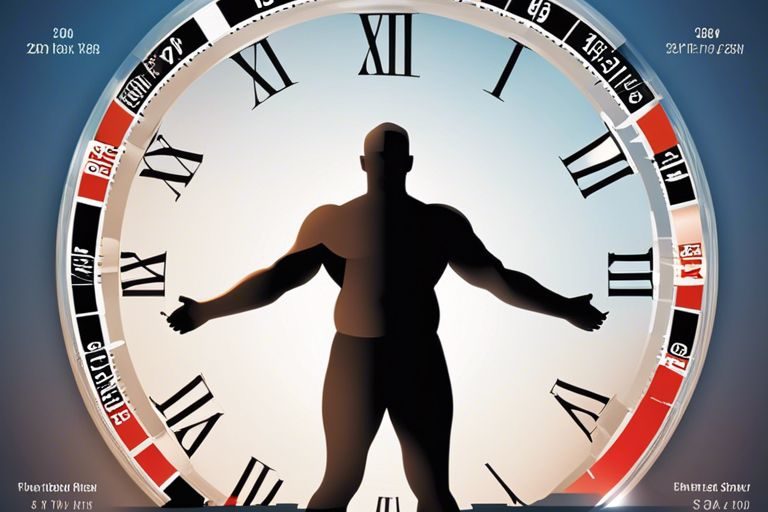
In this informative article, you will explore the intriguing relationship between timeframes and weight loss in fasting. Delving into the science behind fasting, you will uncover the impact that different timeframes can have on shedding those extra pounds. By understanding how the duration of fasting affects your body’s metabolism and fat-burning abilities, you will gain valuable insights on maximizing your weight loss journey.
The Science Behind Fasting: Timeframes and Weight Loss Impacts
Fasting has gained significant popularity in recent years as a weight loss strategy. It involves voluntarily abstaining from food and, in some cases, beverages for a specific period of time. While fasting has been practiced for centuries due to cultural, religious, and spiritual reasons, its impact on weight loss has been a subject of scientific inquiry. In this article, we will delve into the different timeframes of fasting, how it aids in weight loss, the factors that influence weight loss during fasting, and considerations for choosing the right fasting timeframe.
Understanding the Different Timeframes of Fasting
Fasting can encompass various timeframes, ranging from short-term fasts to extended periods of fasting. The timeframes primarily depend on the duration of abstaining from food and beverages. Three main categories of fasting timeframes are commonly recognized: short-term fasting, intermittent fasting, and extended fasting.
How Does Fasting Aid in Weight Loss?
Fasting promotes weight loss by inducing a calorie deficit in the body. When you fast, your body starts utilizing stored energy reserves, such as glycogen and fat, as a source of fuel. As a result, your body burns more calories than it consumes, leading to weight loss. This calorie deficit triggers the body’s natural fat-burning mechanisms and can result in improved metabolic health.

Factors That Influence Weight Loss During Fasting
Several factors can influence the extent of weight loss during fasting. These factors include individual metabolism, the composition of the diet consumed prior to fasting, physical activity levels during fasting, and the duration and frequency of fasting periods. Additionally, factors such as age, sex, genetics, and overall health can also impact weight loss outcomes during fasting.
Short-term Fasting and Weight Loss
Short-term fasting refers to fasting periods that typically last up to 48 hours. This timeframe can be an effective way to kick-start weight loss and break through weight loss plateaus. During short-term fasting, the body primarily burns glycogen stores. Glycogen is a form of glucose stored in the liver and muscles, and its depletion leads to a reduction in water weight. While short-term fasting can result in noticeable weight loss, the loss mainly consists of water weight and not necessarily fat.

Intermittent Fasting Effects on Weight Loss
Intermittent fasting (IF) involves alternating periods of fasting and non-fasting. There are different variations of intermittent fasting, such as the 16/8 method, where you fast for 16 hours and restrict your eating to an 8-hour window. IF has gained popularity due to its flexibility and potential health benefits beyond weight loss. When it comes to weight loss, intermittent fasting can be effective as it helps control overall caloric intake by limiting the eating window, leading to a calorie deficit and subsequent weight loss.
The Impact of 24-Hour Fasting on Weight Loss
A 24-hour fast, wherein you abstain from food and beverages (except water) for a full day, can have notable impacts on weight loss. During a 24-hour fast, the body starts utilizing stored fat as an energy source. This period of fasting initiates a significant calorie deficit and can lead to substantial weight loss. However, it is essential to approach 24-hour fasting with caution and be mindful of your body’s signals, as extended periods without nourishment can have adverse effects on some individuals.

Extended Fasting and Its Effects on Weight Loss
Extended fasting refers to fasting periods that typically last beyond 24 hours, ranging from several days to weeks. This extreme form of fasting can induce rapid weight loss due to the prolonged calorie deficit. During extended fasting, the body extensively utilizes stored fat for fuel, and weight loss primarily consists of fat loss. However, extended fasting should only be undertaken under medical supervision, as it carries potential risks and requires careful monitoring to prevent complications.
Comparing Different Timeframes: Which Works Best?
The effectiveness of different fasting timeframes for weight loss varies from person to person. Short-term fasting can provide a quick drop in weight, but the loss may be attributed to water weight. Intermittent fasting offers more sustainable weight loss results by controlling caloric intake. The impact of 24-hour fasting on weight loss lies between short-term fasting and intermittent fasting, while extended fasting can result in significant weight loss but should be approached with caution. It is crucial to choose a fasting timeframe that aligns with individual goals, preferences, and overall health.
Potential Challenges of Different Fasting Timeframes
While fasting can be an effective weight loss strategy, it is not without its challenges. Short-term fasting may lead to hunger pangs and cravings, making it difficult for some individuals to adhere to. Intermittent fasting may require lifestyle adjustments and discipline to restrict eating within specific time windows. 24-hour fasting and extended fasting can be physically and mentally demanding and may not be suitable for everyone. It is important to be aware of these challenges and listen to your body’s needs when choosing a fasting timeframe.
Considerations for Choosing the Right Fasting Timeframe
When choosing the right fasting timeframe, it is crucial to consider personal preferences, lifestyle, and overall health. Short-term fasting can be beneficial for those looking for immediate weight loss results, while intermittent fasting provides a more sustainable approach. 24-hour fasting can be a middle ground, whereas extended fasting should only be considered after consulting with a healthcare professional. Experimenting with different timeframes and assessing their compatibility with individual goals and well-being is key to finding the most suitable fasting approach.
In conclusion, fasting can be an effective tool for weight loss, provided it is practiced safely and in line with individual needs. The timeframes of fasting, ranging from short-term to extended periods, offer various impacts on weight loss. Short-term fasting primarily leads to water weight loss, while intermittent fasting and 24-hour fasting result in calorie deficits and subsequent fat loss. Extended fasting can induce significant weight loss but requires careful medical supervision. Choosing the right fasting timeframe involves considering personal preferences, lifestyle, and overall health. Remember, it’s always essential to listen to your body, consult healthcare professionals if necessary, and prioritize long-term sustainable weight loss goals.







